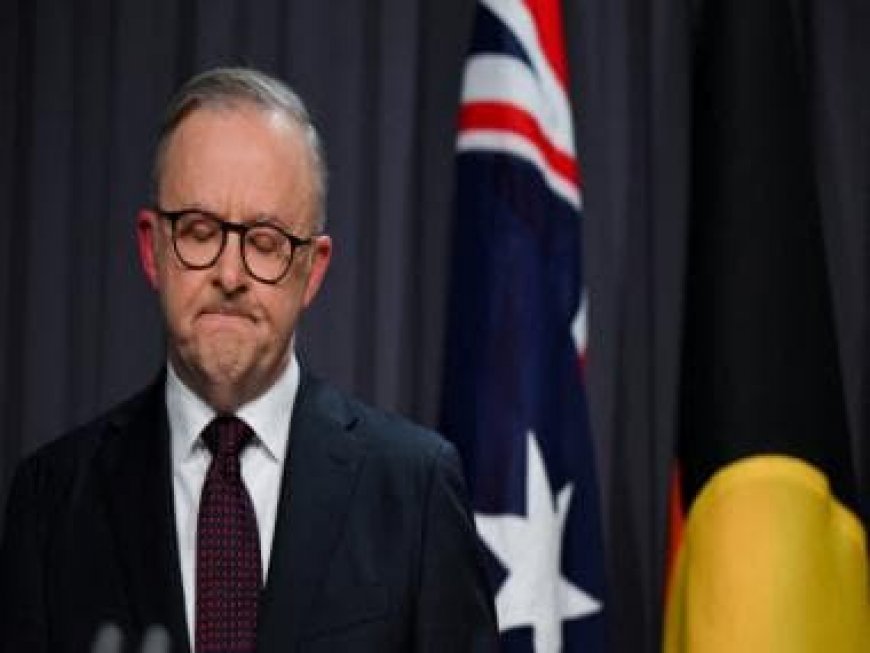Setback for reconciliation as Australia rejects Indigenous referendum
Setback for reconciliation as Australia rejects Indigenous referendum

Australia strongly rejected a constitutional amendment on Saturday that would have recognised Indigenous people, which is a big setback for the nation’s efforts to achieve peace with its First Peoples.
The first referendum in almost 25 years required Australians to choose “Yes” or “No” on whether to change the constitution to recognise Aboriginal and Torres Strait Island people by establishing an Indigenous advisory body called “Voice to Parliament.”
Nationwide, the “No” vote was 60% to 40% ahead of the “Yes” vote with nearly 70% of the ballots counted. According to projections made by Australian broadcaster ABC and other TV networks, the majority of voters in each of Australia’s six states would reject changing the 122-year-old constitution.
A national majority and at least four of the six members must concur for a referendum to be deemed successful.
While admitting it was not the result he had hoped for, Prime Minister Anthony Albanese said the nation would need to look for a fresh strategy for reconciliation.
“Our nation’s road to reconciliation has often been hard going,” Albanese said in a televised news conference.
“Tonight is not the end of the road and is certainly not the end of our efforts to bring people together.”
Academics and human rights activists worry that the “No” camp’s victory could put reconciliation efforts years behind schedule.
The Uluru Statement from the Heart, a 2017 declaration drafted by Indigenous leaders that outlined a plan for reconciliation with the rest of Australia, included the Voice to Parliament as one of its recommendations.
Indigenous Australians, who make up 3.8% of Australia’s 26 million inhabitants and have been on the continent for nearly 60,000 years, are the most economically and socially disadvantaged people in the nation despite not being recognised in the constitution.
Supporters of the idea hoped that including an Indigenous Voice into the constitution would bring Indigenous Australians together and usher in a new age.
Although many Indigenous people supported the change, others said it was a distraction from achieving practical and positive outcomes.
The political opposition has criticised the measure, saying it is divisive, would be ineffective, and would slow government decision-making.
“I’m devastated,” Indigenous leader and prominent “Yes” campaigner Thomas Mayo said on ABC News.
“We need a Voice. We need that structural change.”
In Australia, where the first referendum was held in 1901, just eight of 44 have been successful. Since Australians rejected a plan to become a republic almost 25 years ago, this is the country’s first referendum.
A vote in 1967 to include Indigenous Australians in the population was overwhelmingly supported by both political parties.
However, the referendum this year has not received unanimity of support, with the heads of the main conservative parties urging voters to vote “No”.
In Australia, no referendum has ever passed without support from all major parties.
According to political analysts, Prime Minister Albanese’s biggest setback since taking office would be a referendum defeat because The Voice has been so important to his administration.
Peter Dutton, the head of the opposition, attacked Albanese for convening a referendum “that Australia did not need to have”.
“The proposal and the process should have been designed to unite Australians, not to divide us,” he told a news conference after the result was known on Saturday.
A social media misinformation campaign also stoked worries that the Voice, a purely advisory body, might transform into a third chamber of parliament, leading to increased federal support for Aboriginal people and conflicts between Indigenous and non-Indigenous people.
Albanese also chastised some media outlets for, in his opinion, diverting attention from the crucial issues during the referendum campaign.
“We have had, including in outlets represented in this room, discussions about a range of things that were nothing to do with what was on the ballot paper tonight,” Albanese said.
(With agency inputs)
What's Your Reaction?


























































